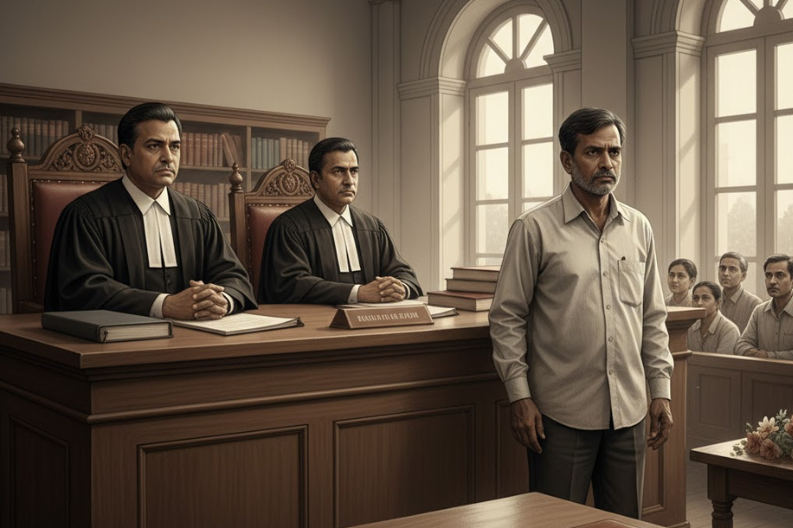The High Court Acquits Man in 1996 Ghaziabad Bomb Blast Case after a major ruling on November 10, which brought new attention to one of the most tragic incidents of the 1990s. The court, led by Justice Siddharth and Justice Ram Manohar Narayan Mishra, made the decision to free Mohammad Ilyas. Although they announced the verdict with a heavy heart, they made it clear that the prosecution failed to present strong and legal evidence.
The judges said they felt deep sadness because the blast killed 18 innocent people. The tragedy had shocked the entire country, and the loss still hurts many families. However, the court also explained that the justice system must rely on solid proof, not emotions or assumptions. Therefore, they reviewed every detail carefully before reaching a final decision.
The main problem came from the confession that police claimed Ilyas made in 1997. Since the TADA Act had already lapsed in 1995, confessions recorded by police officers could not be used as evidence. As a result, the court could not accept the confession that was recorded on an audio cassette during his arrest in Ludhiana.
Furthermore, the judges pointed out that Section 25 of the Indian Evidence Act blocks the court from using confessions recorded by the police. Because of this strict rule, the confession could not support the charges. Without it, the prosecution had very little left to prove that Ilyas helped plant the bomb in the Ghaziabad bus.
Investigators also presented a diary and some railway tickets linked to Ilyas. However, these items did not prove any involvement in the crime. The diary only mentioned a man named Saleem Kari, who was related to another accused person. Yet, a simple mention of a name was not enough to connect Ilyas to the blast.
Additionally, the railway tickets only showed that Ilyas traveled to places like Muzaffarnagar, Jammu Tawi, and Ludhiana. Since traveling is normal and common, the judges said it could not be treated as proof of guilt. Therefore, the court decided that these pieces of evidence did not create a reliable link to the bombing.
To understand the case fully, it is important to recall that the 1996 Ghaziabad blast created fear across Uttar Pradesh. The explosion killed 18 people and injured many others. Later, in January 1997, police arrested Tasleem, another suspect. Investigators believed his brother, Saleem Kari, influenced him with extremist ideas. Because of such factors, police began to see a larger network behind the attack.
However, even though terrorism cases are extremely serious, the court stressed that every accused person has rights. The judges explained that the justice system must protect those rights and make sure authorities do not punish anyone without strong legal evidence. This approach helps maintain public trust in the courts.
The TADA Act, which once allowed police-recorded confessions, had lapsed due to concerns of misuse. Many people had argued that the law allowed forced confessions. As a result, after 1995, courts had to depend only on evidence collected through legal methods. Because this case was registered in 1996, the old TADA protections could not apply.
In 2013, a trial court had convicted Ilyas and another accused, Abdul Mateen, of multiple charges, including criminal conspiracy and using explosive substances. Nevertheless, the High Court reviewed the case again and concluded that the earlier ruling used evidence that the law no longer supported.
Experts now believe this verdict highlights the importance of balancing security and fairness. Terrorism cases demand strict investigations, but the law also requires reliable proof before any punishment. Therefore, the judgment has encouraged discussions about how India should handle similar cases in the future.
Families of the victims continue to hope for justice and closure. Although the court freed Ilyas, investigators may still look for stronger evidence or new leads. Many believe that the case shows how important it is for police to follow proper procedures during investigations.
In conclusion, the High Court Acquits Man in 1996 Ghaziabad Bomb Blast Case because the evidence presented did not meet the legal standards required for conviction. As India continues to fight terrorism, this ruling reminds the nation to also protect fairness, transparency, and the rights of every citizen.



